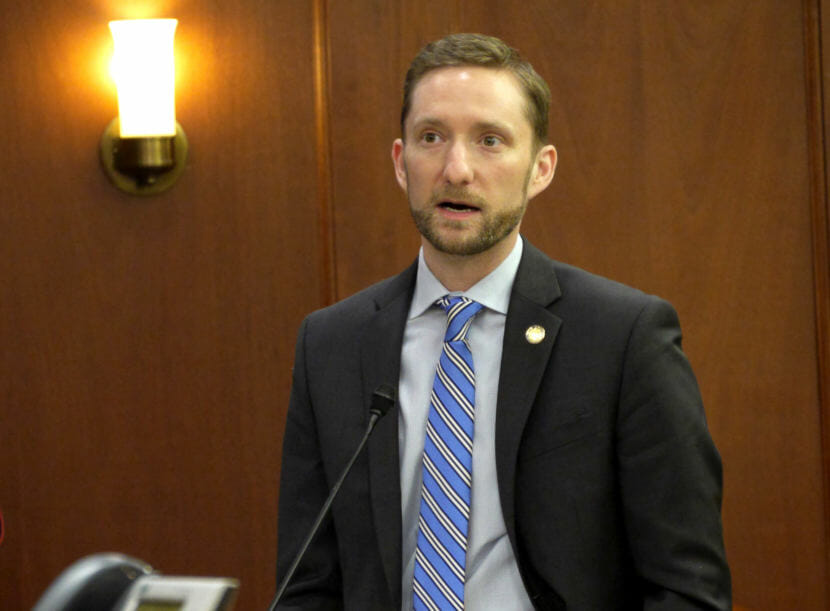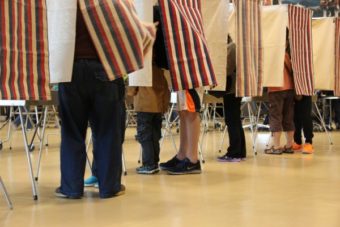
Update (Thursday, 6:43 p.m.) — Andrew Kitchenman, KTOO and Alaska Public Media
Anchorage Superior Court Judge Yvonne Lamoureux rejected a request by the Alaska Department of Law to temporarily stop signature gathering for an initiative to overhaul the state’s election laws. (Read more.)
Original story
A judge ruled on Monday that a ballot measure that would change how Alaskans choose state elected officials can move forward.
Anchorage Superior Court Judge Yvonne Lamoureux overruled Lt. Gov. Kevin Meyer, who rejected the Alaska’s Better Elections Initiative. Meyer was acting on the advice of Attorney General Kevin Clarkson. Clarkson said the initiative violates a state law requiring that ballot measures address a single subject.
Former state independent lawmaker Jason Grenn, one of the initiative’s sponsors, said the sponsors were ecstatic.
“The reason we appealed the attorney general’s findings was, we thought that this … obviously would be good for Alaskans and good for our election reform up here in our state,” said Grenn, who added: “We thought that this fell under the umbrella of the single-subject rule.”

The initiative would require public disclosure of the names of those who contribute to groups working to influence candidate elections.
It would also consolidate the state’s primary system, instead of holding separate party primaries. The top four finishers, regardless of party, would advance to the general election. And voters would be able to rank the candidates in the general election. Sponsors said this would ensure that the winner is preferred by a majority of voters.
Lamoureux wrote that the initiative sponsors can immediately start gathering signatures.
The sponsors want to submit a petition so that it will be on the ballot next year. For that to happen, they’ll need to gather more than 28,000 signatures before the legislative session starts on Jan. 21.
The state has already filed a request to put the effort to gather signatures on hold. Assistant Attorney General Cori Mills said the Alaska Supreme Court may have to resolve an appeal of the ruling. She said a previous court decision, Croft v. Parnell, lays out a standard that invalidates this initiative.
“What the Croft v. Parnell court focused on is allowing voters the opportunity to vote on distinct proposals separately,” she said.
And Mills said this initiative has too many different pieces: Voters may like some pieces of it, but not others.
Mills said the state will file an appeal within the next few days.